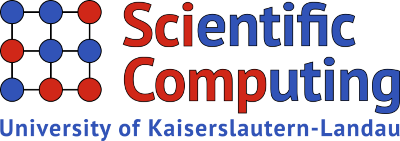Date and Place: Thursdays and hybrid (live in 32-349/online via Zoom). For detailed dates see below!
Content
In the Scientific Computing Seminar we host talks of guests and members of the SciComp team as well as students of mathematics, computer science and engineering. Everybody interested in the topics is welcome.
List of Talks
Event Information:
-
Thu21Jul2016
SC Seminar: Thomas Economon
11:30SC Seminar Room 32-349
Thomas Economon, Aerospace Design Laboratory, Stanford University
Title:
Simulation-based Analysis and Design for Efficient Aerospace SystemsAbstract:
The aerospace industry regularly depends upon computational methods for analyzing and designing advanced aircraft, launch vehicles, or jet engines, for example. However, these calculations can carry high computational cost at the required fidelity, and the expense is compounded by embedding the calculations within design loops. To combat this, we seek advances in design methodologies, including the development of high-fidelity, adjoint-based techniques that can provide tremendous efficiency improvements for gradient-based optimization using computational fluid dynamics (CFD). Moreover, by making effective use of the extreme computational resources becoming available, problem complexity can be increased, and predictions can become more accurate, reliable, and robust while maintaining turnaround times that fit within the industrial design cycle. Consequently, the combination of these theoretical and computational advances will directly enable the design of next-generation aerospace vehicles with reduced fuel burn, emissions, and noise.
As demonstrations of these components, this talk contains two separate but related topics. The first portion presents the development and application of a new unsteady continuous adjoint formulation for optimal shape design of aerodynamic surfaces in motion, such as rotating or pitching applications. By leveraging shape calculus, the resulting surface formulation efficiently provides the sensitivity information necessary for performing gradient-based aerodynamic shape optimization. Several open issues and future directions for adjoint-based methods will be highlighted. The second part of the presentation covers recent work in the area of high performance computing. As supercomputers push toward exascale, it is increasingly difficult to achieve high levels of performance and portability on emerging hardware architectures. The scalability needed by many crucial applications will only be realized through research and investment in both algorithmic improvements and new computer science techniques. Accordingly, investigations into scalable algorithms and the harnessing of multiple levels of parallelism in a modern CFD code will be presented.
